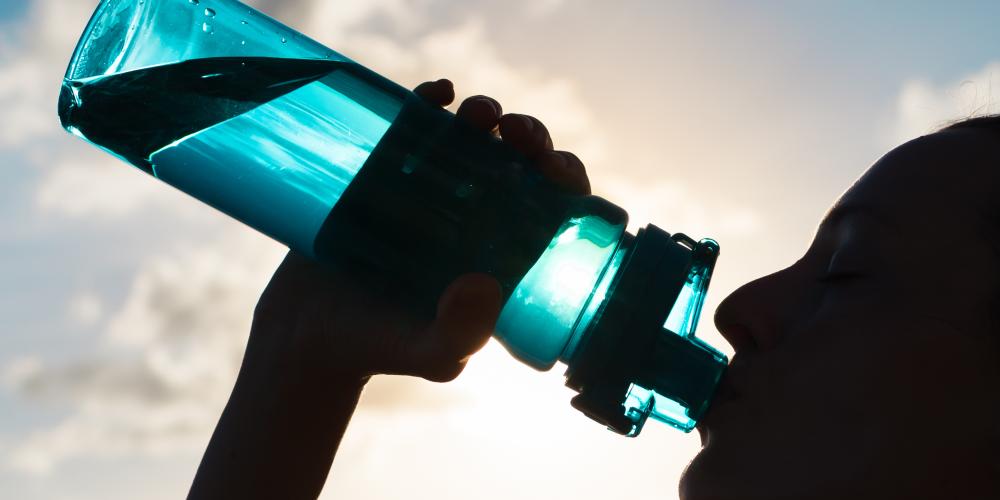
Dehydration has a negative impact on the human body. Many studies have already shown that a lack of body fluids and fluid intake is harmful, leading to reduced aerobic performance. Earlier studies have mainly been conducted in warm environments, but we can just as well turn the situation around. Drinking too little in cold, dry environments also has negative consequences for the performance of the body, including during sports activities. So the athletes at the Winter Olympics would do well to drink enough water and keep their hydration levels up.
“For performance in the heat, attention to an adapted drinking schedule is already well established. Athletes who have to perform for several hours in the cold and at altitude receive hardly any guidance in this,” says Dirk Aerenhouts, VUB professor connected to the research group Movement and Nutrition for Health and Performance (MOVE).
Alpine skiing
Alpine skiing is a high-intensity interval activity and relies on both anaerobic and aerobic forms of energy. This means that intense activity is alternated with calmer intervals of recovery. Due to the altitude at which the sport is practised, athletes are often faced with cold and dry environments. Many fail to drink during training because there are very few toilet facilities along the slopes.
Hydration is mainly done before and after a training session. However, failure to get fluid intake at the right level creates the risk of too slow recovery with a negative impact on performance the following day.
8-day study of dehydration
The number of studies on alpine skiers is rather limited. The MOVE researchers therefore monitored 12 young alpine skiers aged between 14 and 16 during an eight-day high-altitude training course (1,600-2,200m). Three girls and nine boys participated in the study.
The group’s hydration levels were measured daily both before and after training. Researchers also examined whether the athletes could compensate for their fluid loss by drinking as much as they wanted.
During the camp, average starting values remained stable. However, there was a slight tendency towards dehydration before the morning training sessions. Fluid loss during training sessions was not extreme but it was clearly present. Some participants managed to compensate their fluid loss – occasionally even exceed it – but more than half of the group lost more fluid than they took in.
The role of the coach and external factors
The coach plays an important role in encouraging their athletes to drink sufficiently. It is very important for coaches to be aware of this responsibility and, especially when working with young people, to ensure they include sufficient drinks breaks.
External factors such as colder temperatures and drier environments also play a role in the effects of dehydration. Exercising at higher altitude could significantly increase the impact.
It is also important to pay attention to hydration levels during preparations and between training sessions, to avoid an athlete starting with an imbalance of body fluids.
About the researchers
Dirk Aerenhouts, Laurent Chapelle, Peter Clarys and Evert Zinzen belong to the research group Movement and Nutrition for Health and Performance (MOVE). The group is attached to the Movement and Sports Sciences Department of the Faculty of Physical Education and Movement Sciences and Rehabilitation Sciences and Physiotherapy of the Vrije Universiteit Brussel. MOVE combines the enthusiasm and expertise of young and more experienced scientists and focuses on three themes: health, performance and motor skills and didactics.